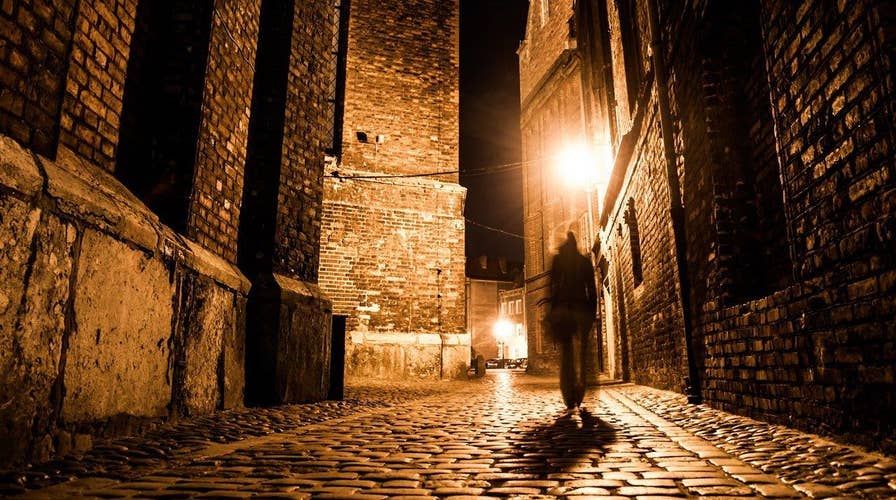Jack the Ripper mystery solution hits a new roadblock
Four4Four Science: A roadblock in the mystery surrounding Jack the Ripper's final victim; A friendly message to President Trump from Bill Nye; Boaty McBoatface is back; Tomato peels and egg shells repurposed
Researchers looking to identify the last known victim of Jack the Ripper have hit a low-tech roadblock that will likely prevent them from unleashing their DNA testing technology on any potential remains.
Experts from the U.K’s University of Leicester that identified the remains of King Richard III have embarked on the project to identify Jack the Ripper’s last known victim – Mary Jane Kelly, who was also known as Marie Jeanette Kelly.
The infamous murderer is thought to have killed at least five young women in the Whitechapel area of London between August and November 1888.
SCIENTIFIC BREAKTHROUGH LOST? UNIQUE METALLIC HYDROGEN SAMPLE DISAPPEARS
The scientists were commissioned by crime author Patricia Cornwell to examine the feasibility of finding Kelly’s exact burial location and her remains as a precursor to possible DNA analysis. In a statement, the University explained that the effort to establish Kelly’s true identity follows contact with Wynne Weston-Davies who believes that Mary Jane Kelly was actually his great aunt, Elizabeth Weston Davies.
In his 2015 book “The Real Mary Kelly,” Weston-Davies claims that the woman known as Mary Jane Kelly was living under a pseudonym and was actually his great-aunt.
As part of ‘The Mary Jane Kelly Project’ researchers have already assessed Kelly’s burial location, visiting St. Patrick’s Catholic Cemetery in Leytonstone, London last year. The team studied the cemetery’s burial records and surveyed marked graves near Kelly’s modern grave marker.
PHOTOGRAPHER CAPTURES INCREDIBLE IMAGES OF ISOLATED AMAZON TRIBE
But finding Kelly’s actual remains poses a massive challenge, with the grave marker likely having little relevance to her actual grave. Dr. Turi King, reader in genetics and archaeology at the University of Leicester explained that the precise location of Kelly’s grave is unknown; making it highly likely that other remains would have to be disturbed in any exhumation. King noted that the communal gravesite where Kelly was buried was reused in the 1940s, making the researchers’ job extremely difficult, if not impossible.
“For the DNA testing to go ahead, it's crucial that we know the remains we have are those of Mary Jane Kelly and given what we know, the likelihood of even finding her remains, let alone identifying them accurately, appears highly unlikely,” she told Fox News, via email.
To complete an exhumation application to the U.K.’s Ministry of Justice, researchers would have to make a compelling case for the exhumation as well as provide detailed information on the grave’s location, as well as determining whether other remains might be disturbed, according to King.
FOR THE LATEST TECH FEATURES FOLLOW FOX NEWS TECH ON FACEBOOK
The University of Leicester team estimates that, in order to locate Kelly’s remains, they would have to excavate an area potentially encompassing hundreds of graves.
"As information presently stands, a successful search for Kelly's remains would require a herculean effort that would likely take years of research, would be prohibitively costly and would cause unwarranted disturbance to an unknown number of individuals buried in a cemetery that is still in daily use, with no guarantee of success,” said King, in the University’s statement. "Most human remains found during excavations remain stubbornly, and forever, anonymous and this must also be the fate of Mary Jane Kelly."
Follow James Rogers on Twitter @jamesjrogers





















